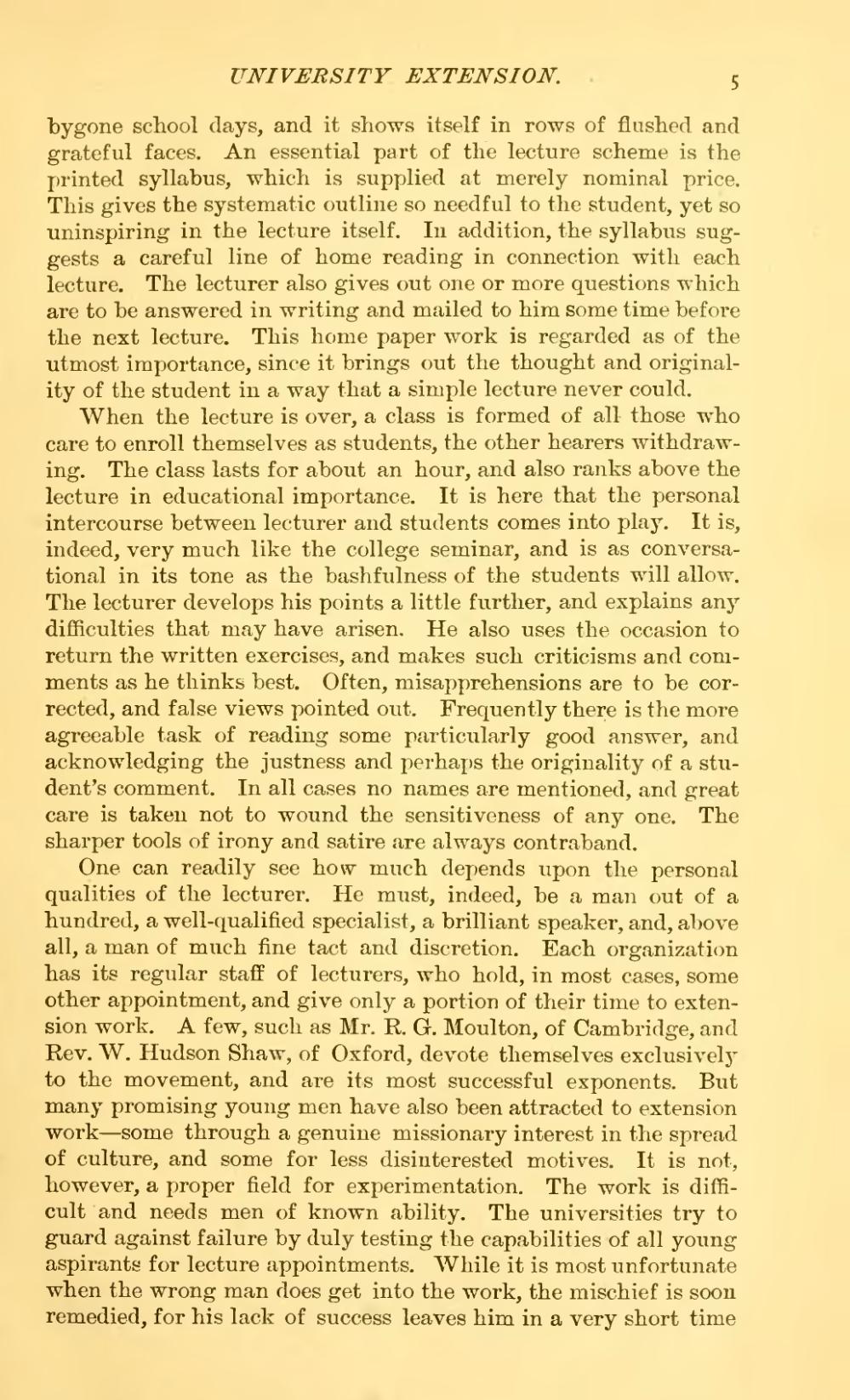bygone school days, and it shows itself in rows of flushed and grateful faces. An essential part of the lecture scheme is the printed syllabus, which is supplied at merely nominal price. This gives the systematic outline so needful to the student, yet so uninspiring in the lecture itself. In addition, the syllabus suggests a careful line of home reading in connection with each lecture. The lecturer also gives out one or more questions which are to be answered in writing and mailed to him some time before the next lecture. This home paper work is regarded as of the utmost importance, since it brings out the thought and originality of the student in a way that a simple lecture never could.
When the lecture is over, a class is formed of all those who care to enroll themselves as students, the other hearers withdrawing. The class lasts for about an hour, and also ranks above the lecture in educational importance. It is here that the personal intercourse between lecturer and students comes into play. It is, indeed, very much like the college seminar, and is as conversational in its tone as the bashfulness of the students will allow. The lecturer develops his points a little further, and explains any difficulties that may have arisen. He also uses the occasion to return the written exercises, and makes such criticisms and comments as he thinks best. Often, misapprehensions are to be corrected, and false views pointed out. Frequently there is the more agreeable task of reading some particularly good answer, and acknowledging the justness and perhaps the originality of a student's comment. In all cases no names are mentioned, and great care is taken not to wound the sensitiveness of any one. The sharper tools of irony and satire are always contraband.
One can readily see how much depends upon the personal qualities of the lecturer. He must, indeed, be a man out of a hundred, a well-qualified specialist, a brilliant speaker, and, above all, a man of much fine tact and discretion. Each organization has its regular staff of lecturers, who hold, in most cases, some other appointment, and give only a portion of their time to extension work. A few, such as Mr. R G. Moulton, of Cambridge, and Rev. W. Hudson Shaw, of Oxford, devote themselves exclusively to the movement, and are its most successful exponents. But many promising young men have also been attracted to extension work—some through a genuine missionary interest in the spread of culture, and some for less disinterested motives. It is not, however, a proper field for experimentation. The work is difficult and needs men of known ability. The universities try to guard against failure by duly testing the capabilities of all young aspirants for lecture appointments. While it is most unfortunate when the wrong man does get into the work, the mischief is soon remedied, for his lack of success leaves him in a very short time

